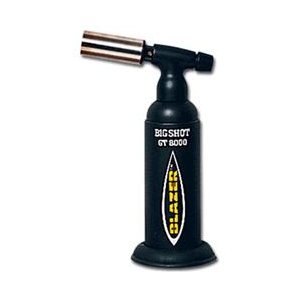The Important Role that Butane Plays in the Medical Industry
Although most modern hospitals in the developed world certainly are not relying on butane-fueled lanterns as their primary, or even backup, light source, butane continues to play a vital role in the medical industry, and has helped advance the precision and power of medical procedures. Most patients are unaware or ignorant of the vast majority of specialized equipment and chemicals that medical professionals in dentistry, primary care, surgery, and optometry use every day to improve their health and quality of life. Across these medical disciplines, practitioners use butane-fueled torches in their daily practices. Here are a few of the specific ways in which butane is used in the medical industry.
What are Butane Torches?
Butane torches are intensely powerful tools that can be used for a wide variety of purposes across many fields. Their flames can reach a sustained heat of 2,600 degrees Fahrenheit, making them an invaluable tool for many professionals from jewelry makers to plumbers to construction workers and chefs. Manufacturers of butane torches usually produce refillable butane canisters as well. These devices use piezoelectricity to generate a flame, a process by which a single button touch forces a tiny hammer to strike a piece of quartz that then ignites a spark that activates the butane and produces a powerful, hot flame used to shape, solder, or weld metal such as steel and copper.
Powerful butane torches are available in a wide range of models for both individual and industrial uses. From small, precise pencil-shaped models that offer a familiar grip and portability to larger jet flames with different nozzles and gas flow adjustable controls for professional repair jobs. Industries use tools that are customized to their specific uses. All butane-fueled industrial torches are for professional use only and are not intended for at-home use.
How Are Butane Torches and Butane Propellants Used in the Medical Industry?
Across medical fields, health professionals use industrial butane-fueled torches for normal, everyday procedures. Here are just a few of the important functions that butane serves in the medical industry.
- Dentistry
- General Medicine and Surgery
- Optometry
- Pharmacy
Dental micro torches often run on butane and can be used in the dental laboratory or in the office. Dental students often use a dental diagnostic wax-up that simulates the patient’s upcoming procedure. They may use torches to melt and shape wax so that they can practice on a life-like model before the actual procedure. Dental technicians often use small, handheld butane torches to modify materials for fillings, crowns, or other dental prosthetics, exactly customizing them to fit the patient’s mouth. One more recent use of butane torches involves using tiny versions to annihilate plaque growing inside of a patient’s mouth.
Heating torches and flame heaters are used in many medical instruments. For one such usage, a heat torch is attached to a blood analyzer to make cuvettes, which are small tubes of glass that store and allow for blood to be tested. This cuts down on the time between storing and testing the blood. Butane torches can also sterilize equipment before it is used in medical procedures. If you’ve watched any one of the many medical shows currently on TV, it’s clear that sanitation and cleanliness are extremely important to medical professionals. Besides vigorously scrubbing their hands before every surgery, professionals also wear layers of protective clothing and take great care to sterilize their instruments of all bacteria, parasites, viruses, and other disease-causing agents to avoid transferring infections to their patients at any cost. Special torches have also been used for the inner surface treatment of burst capillaries, which are the smallest of the body’s blood vessels.
Optometrists regularly use butane-fueled torches to customize eyeglasses for their patients by welding frames into a particular shape or angle. Torches can bend, shape, and repair the frames of glasses, which is especially useful for people who need unusual or unsymmetrical frames in order to fit their face.
Pharmacists use butane and other natural gas derivatives as the propellant in aerosol-spray medications. These solutions are used for a wide variety of medications, including local anesthetics, spray-on protective films, foot preparations, anti-inflammatory preparations, and sprays for oral and nasal medications. Butane is also used in the dispersion of suspension aerosols such as anti-asthmatic drugs, steroids, and antibiotics. These medicines are released as foams, as in shaving creams, or sprays to quickly attach and start treating the affected area.
As it has for many professions, butane has become an essential part of the medical industry with far-ranging uses across many different fields and specialties. Although all of these procedures are strictly “do not try at home,” it’s still important to recognize butane’s continued, significant contribution to our healthcare. For more information about butane, please visit Butane Source and speak with one of our experts today.

